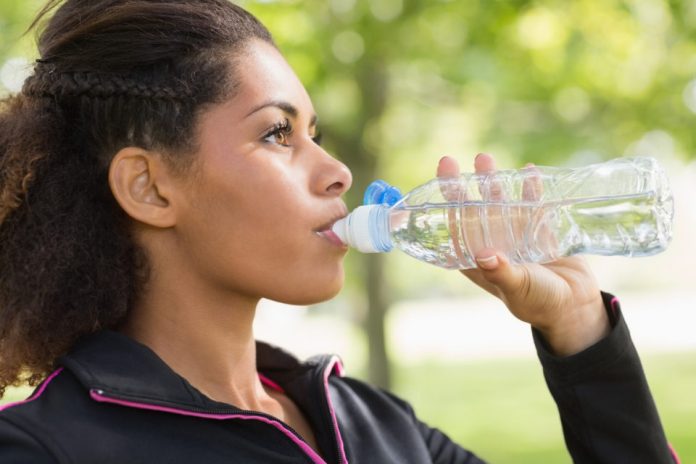Get the best performance out of your body on marathon day
Are you making plans for next year’s marathons? Follow these 10 nutrition tips to help you cross the finish line come race day.
1. Get fueled. Long-distance runners are at higher risk of having low bone density, stress fractures and irregular periods. So you must provide your body with enough energy to perform at its best and prevent unwanted injuries. Calculate their caloric needs by following this guideline (and consult a registered dietitian for a tailored nutrition plan):
▪30 to 60 minutes of activity a day requires 16 to 18 calories per pound
▪1-1/5 hours of activity a day requires 19 to 21 calories per pound
▪1-1/5 to 2 hours of activity a day requires 22 to 24 calories per pound
▪2 to 3 hours of activity a day requires 25 to 30 or more calories per pound
2. Be wise about fiber. You need fiber, but not as much the night before and the morning of your race. High-fiber cereals, fruits, grains, granola bars and vegetables could lead to cramping on race day.
3. Watch your sweat loss. Weigh yourself before and after long runs. For every pound you lose during the run, you will need to replace it with 16 ounces of water.
4. Be prepared for all weather conditions. Heat increases sweat rate and leads to a higher loss of salt. Sweat is the body’s way of eliminating generated heat. In colder temperatures, you’ll require more calories to help maintain your core body temperature. Hydration needs also may increase in cold weather if you’re wearing inappropriate clothing.
5. Carb up. When exercising for longer than an hour, 30 grams to 60 grams of carbohydrates should be consumed every hour. During a marathon, you can consume carbs in a variety forms, including gels, jelly beans, sports drinks, sports bars or a combination.
6. And carbo load. You can improve athletic performance if you maximizes muscle glycogen stores before a marathon. Some carb-loading plans start six days before a race, but you can still maintain a high-intensity run for a longer period of time even if you don’t start your high-carb diet until the day before the race.
7. Monitor your urine output. The clearer the color of your urine, the more hydrated you are.
8. Get adequate protein. You need protein to increase lean muscle mass and aid in muscle repair, but don’t consume more than 1 gram of protein per pound a day.
9. Drink fluids. Water is the most important, of course (losing as little as 2 percent of body weight leads to impaired athletic performance), but make note of these fluid-replacement guidelines:
▪Before exercise: Two hours prior to exercise consume 16 ounces to 20 ounces of water, and 10 to 20 minutes before exercise consume 7 ounces to 10 ounces of water.
▪During exercise: Every 15 to 20 minutes consume 6 ounces to 8 ounces of water. If you are exercising for longer than an hour, a sports drink with 4 percent to 8 percent of carbohydrates will provide energy to working muscles.
▪After exercise: For every pound lost during exercise, 24 ounces of fluid should be consumed to aid in hydration maintenance.
10. Practice, practice, practice. Repeat. Get your nutrition and hydration pattern set ahead of the marathon; it’s not a good idea to try out something new on race day.





